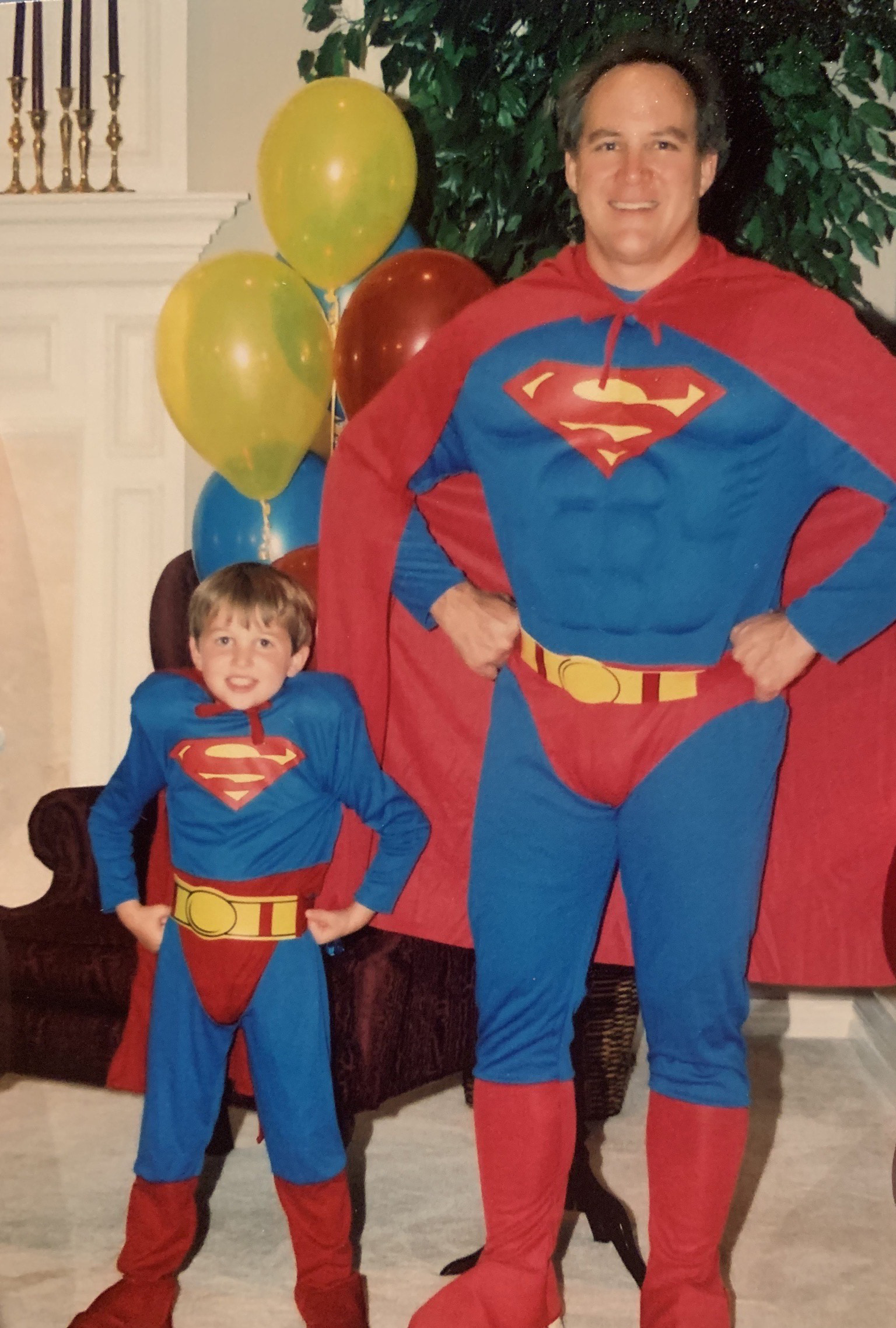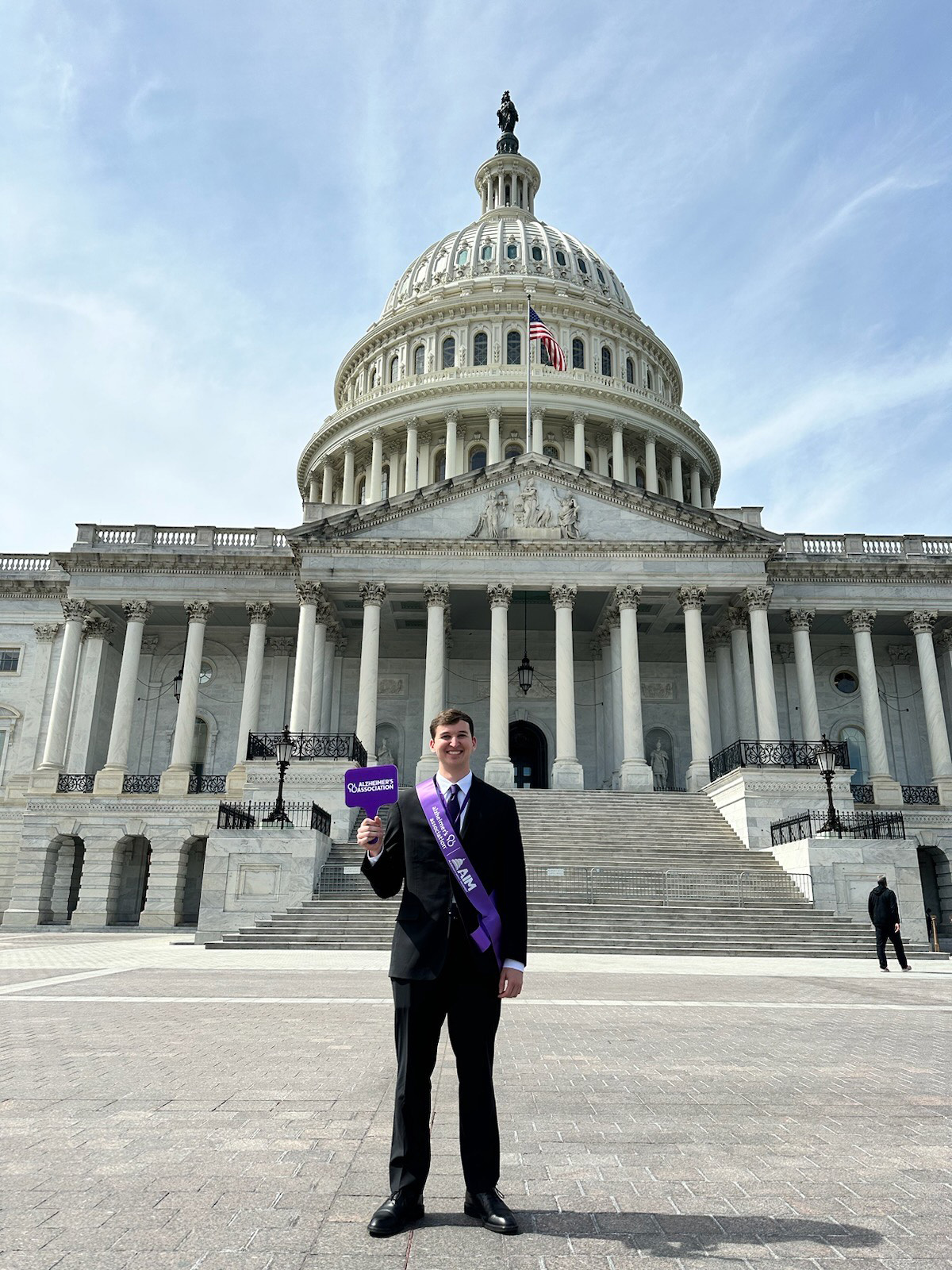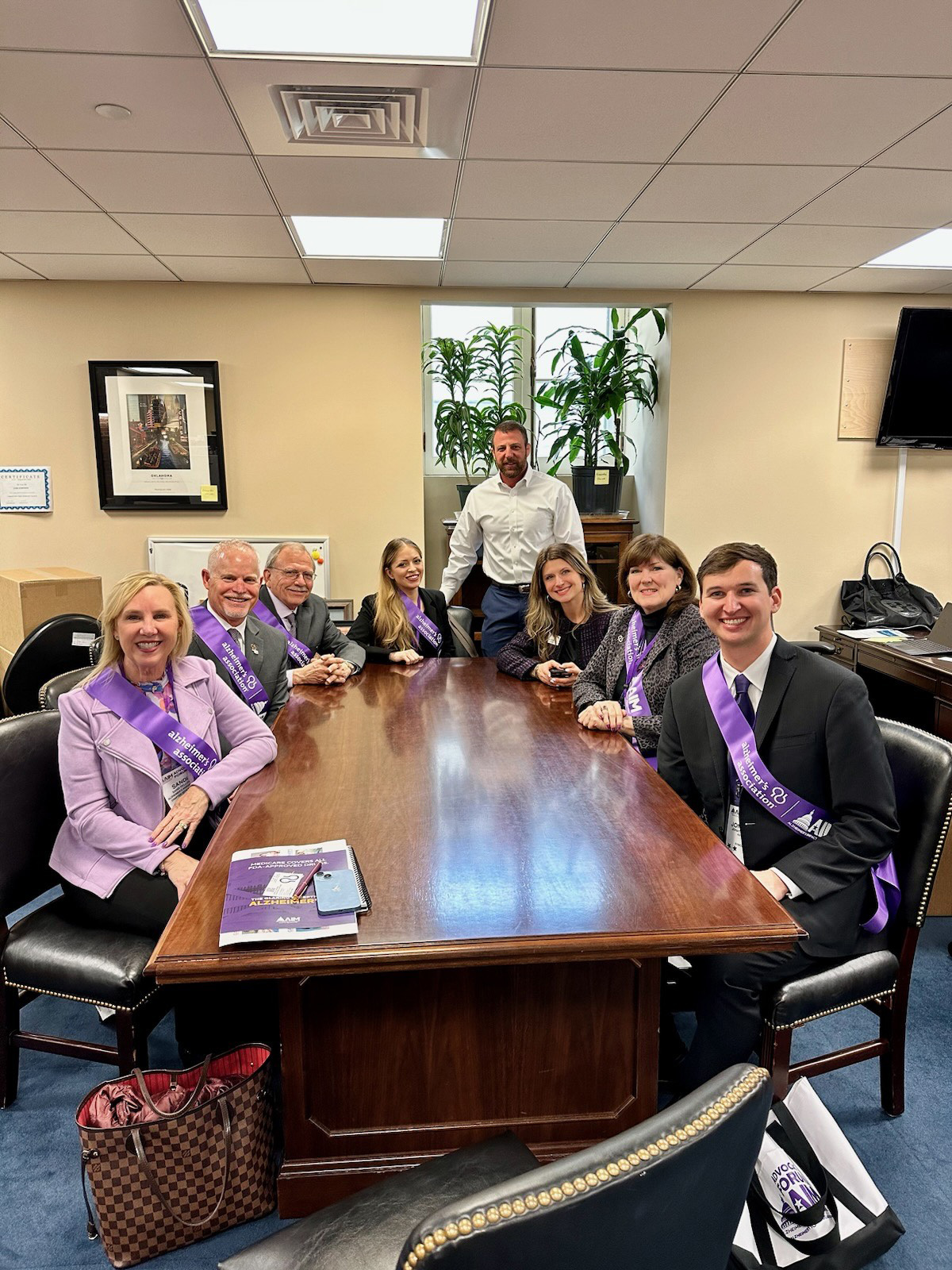
Throwing for a Cure
Tuesday, June 13, 2023
Media Contact: Bailey Stacy | Communications Coordinator | 405-744-2700 | bailey.stacy@okstate.edu
At just 10 years old, Jonathan Foster received the devastating news that his father and role model was diagnosed with early onset Alzheimer’s. Even at such a young age, Foster knew he wanted to be a part of finding a cure for this untreatable disease.
 According to a study conducted by the Alzheimer’s Association, 6.7 million Americans
are living with the disease and that number is projected to rise to nearly 13 million
by the year 2050.
According to a study conducted by the Alzheimer’s Association, 6.7 million Americans
are living with the disease and that number is projected to rise to nearly 13 million
by the year 2050.
“Whenever my parents called me and my siblings in to talk to us after they’d gotten the diagnosis, I was very confused,” Foster said. “I didn’t really know what Alzheimer’s was or what it would mean for my dad or for our family.”
Foster’s dad, Paul, was only 50 when he received the diagnosis that would change the trajectory of his life. The disease started off slow with him forgetting little things and then continued to advance.
“When I was in middle school and high school, the disease really started to progress,” said Foster, a Spears School of Business graduate and Master of Business Administration student. “When I first started learning how to drive was around the same time that he was no longer able to drive, and it was just kind of like that intersection point where it was the first thing that really made me realize that my dad’s mind was functioning below that of a high school student.”
In the early days of Paul’s diagnosis, he advocated for himself and others who were confronted with the disease by speaking to various groups including OSU students and state Congress members at the Oklahoma Capitol.
“After he (Paul) had been diagnosed, he told my mom, ‘This isn't the path I would have chosen but if any glory can be brought to God, I’m a willing vessel.’ And that’s something I always think about,” Foster said.
Wanting to continue his father’s legacy after his dad was no longer able to speak publicly about the realities of living with dementia, Foster picked up where his dad left off.
“I remember telling myself that someday I was going to do something to play a role in the fight to end Alzheimer’s,” Foster said. “At the time, I thought that that meant I’d become like a neuroscientist or something to find a cure. But then growing up and taking science classes, I realized that probably wasn’t the career path for me.”
Although he did not become a neuroscientist, Foster is still making a difference. He has traveled to Washington, D.C., three times to speak with lawmakers on Capitol Hill through the Alzheimer’s Impact Movement Advocacy Forum; has met with Oklahoma government officials to advocate for those suffering from dementia; interned for the Alzheimer’s Association; serves as the chair of the marketing and outreach committee for the Longest Day, a fundraiser benefiting the Alzheimer’s Association; and he and his family participate in the Walk to End Alzheimer’s every year.
Foster remembers Paul, who passed away in 2020, fondly.
He was a father of three who attended all of their events and spent countless hours
watching his kids play sports and participate in their many extracurricular activities.
Paul was the vice president of finance at a major hospital in Oklahoma City and enjoyed
camping, spending time with his family and, as an Oklahoma State University accounting
alum, he loved all things OSU. 
An activity he particularly enjoyed doing with his family was disc golf, which he was able to continue playing even as the disease progressed. Disc golf was introduced to the family by Foster’s older brother, Nicholas, who played at a friend’s house and immediately wanted to play against his dad and brother. Originally, Foster was not interested in playing, but was finally convinced to tag along around the second or third time they went to play.
“I was really bad at it. Like, really bad,” Foster said. “I started going out with them more and playing with them more in order to beat my brother. In the process of trying to get good enough to beat my brother, who was five years older than me, and obviously a lot better than me, I just kind of fell in love with the sport.”
In 2017, as a 17-year-old student at Edmond North High School, he started the “Throwing for a Cure” disc golf tournament fundraiser for the Alzheimer’s Association.
Now, Foster has competed in more than 40 sanctioned tournaments and is an advanced player with a 900+ ranking, just one tier down from the pro level, where he aspires to be one day. Disc golf served as a way for Foster to connect and spend time with his dad. It also served as a home away from home, an escape for him to take a break from being a caregiver for a couple hours and spend time just being a teenager.
Disc golf even led to a marketing and operations internship for Foster with another nonprofit organization, the Paul McBeth Foundation, which serves underprivileged communities around the world by bringing the sport to them. In fact, Foster was recruited to be their first intern ever in 2022. He spent a little over a week in Nicaragua bringing the joy of disc golf to an underserved community and teaching clinics at schools.
“There’s something about disc golf. It just feels like such a family,” Foster said.
“I realized I could combine the love that I have of disc golf and the desire to play a role in the fight to end Alzheimer’s to start a fundraiser disc golf tournament.”
Thus the “Throwing for a Cure” fundraiser was born. Seven years after his father’s diagnosis, Foster recruited 30 players and raised more than $4,000 benefiting the Alzheimer’s Association.
 Since then, he has been able to grow the tournament into a larger event, even having
it sanctioned by the Professional Disc Golf Association and has raised more than $40,000
in the seven years he has been hosting the tournament. The annual fundraiser has attracted
some of the top Oklahoma professionals in the sport.
Since then, he has been able to grow the tournament into a larger event, even having
it sanctioned by the Professional Disc Golf Association and has raised more than $40,000
in the seven years he has been hosting the tournament. The annual fundraiser has attracted
some of the top Oklahoma professionals in the sport.
Foster has big goals for the future of “Throwing for a Cure.” He hopes to turn what started as a 30-person tournament into a national fundraising event by providing his blueprint as a guide for other communities to start their own event. He hopes to brand “Throwing for a Cure” to sell apparel and products with proceeds going to the Alzheimer’s Association.
His goals for the future don’t stop there. Foster plans to pursue a career with the Alzheimer’s Association in order to help others who are serving as caregivers to their loved ones with dementia, assist those who are grappling with the realities of the diagnosis, and be a voice for changes in policy to better support the Alzheimer’s community and ultimately find a cure.
“It took a long time for me to share my story, but I think there is a lot of power in people’s stories,” Foster said. “Even if you feel like you don’t know anything about public policy, just being there in the room and being able to share your story and giving people a better idea of what it’s like being on this side of the disease is really important.”
Story By: Bailey Stacy | Engage@Spears Magazine
Photos By: Courtesy of Jonathan Foster
